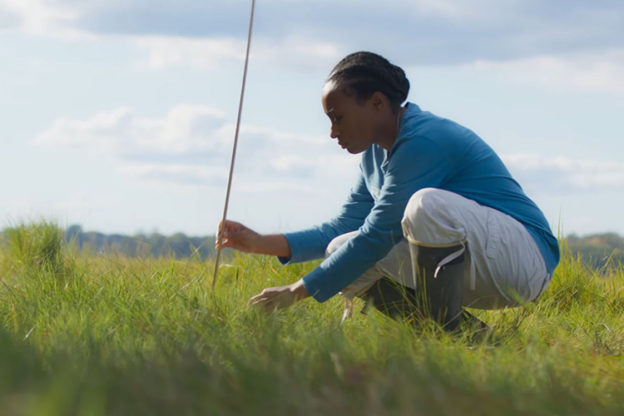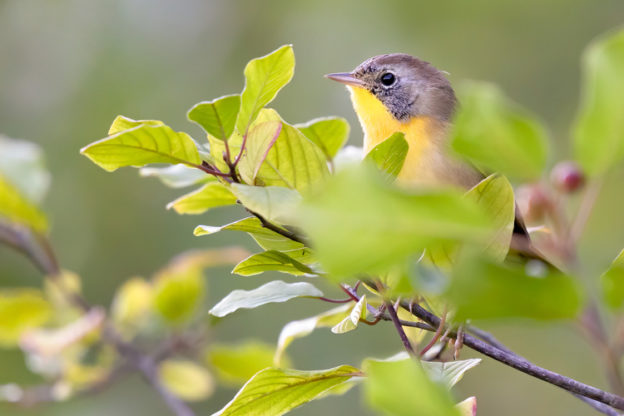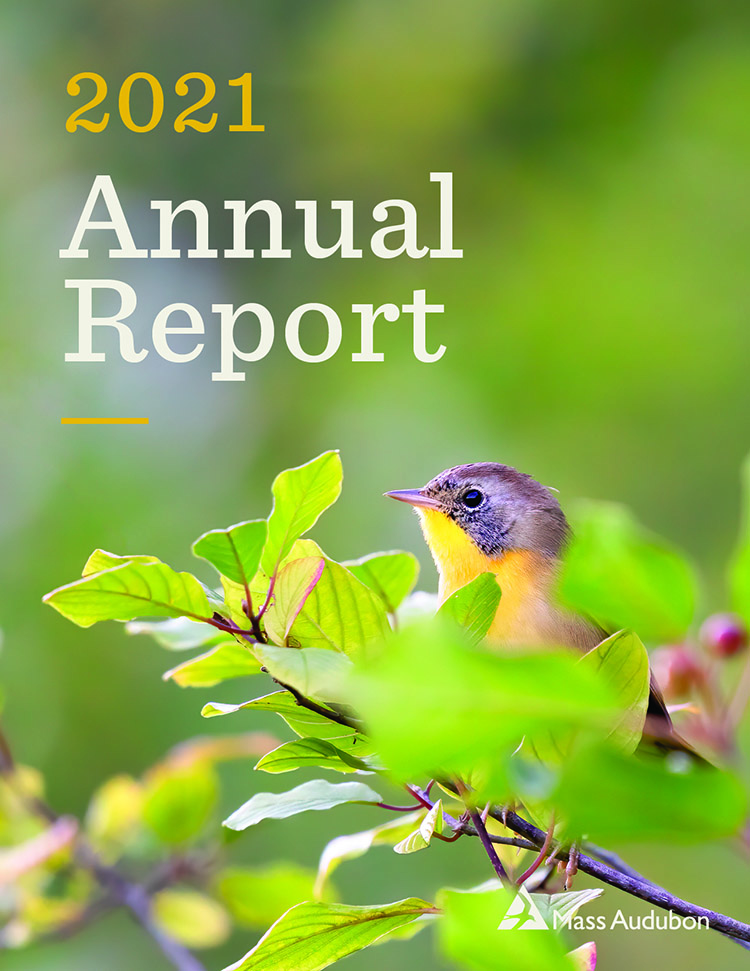Our scientists help create solutions to some of today’s most pressing problems surrounding climate change, land management, education, and wildlife protection. Here are the stories of three of Mass Audubon’s women in science who inspire us on a daily basis.
Dr. Danielle Perry, Coastal Resilience Program Director
Danielle Perry, Ph.D., always knew she didn’t want to have a “typical” job. Instead, she wanted a career where each day was different while making a genuine impact on the world around her.
This led her to a path of research in environmental science and marine biology, specifically around salt marsh restoration. “I felt that restoration was where I was going to have the strongest impact and do the most meaningful work,” said Dr. Perry, “Through restoration, I was able to start solving problems that needed immediate solutions.”
Right now, Dr. Perry is focused on restoring the marshes at Allens Pond Wildlife Sanctuary in Dartmouth, where she works with staff and partners to restore degraded salt marsh habitat and remove barriers to facilitate salt marsh migration. The restoration of marshes like the one at Allens Pond Wildlife Sanctuary is critical for combatting climate change by removing greenhouse gases from the atmosphere and helping communities withstand climate change effects by protecting them against flooding and storm surges.
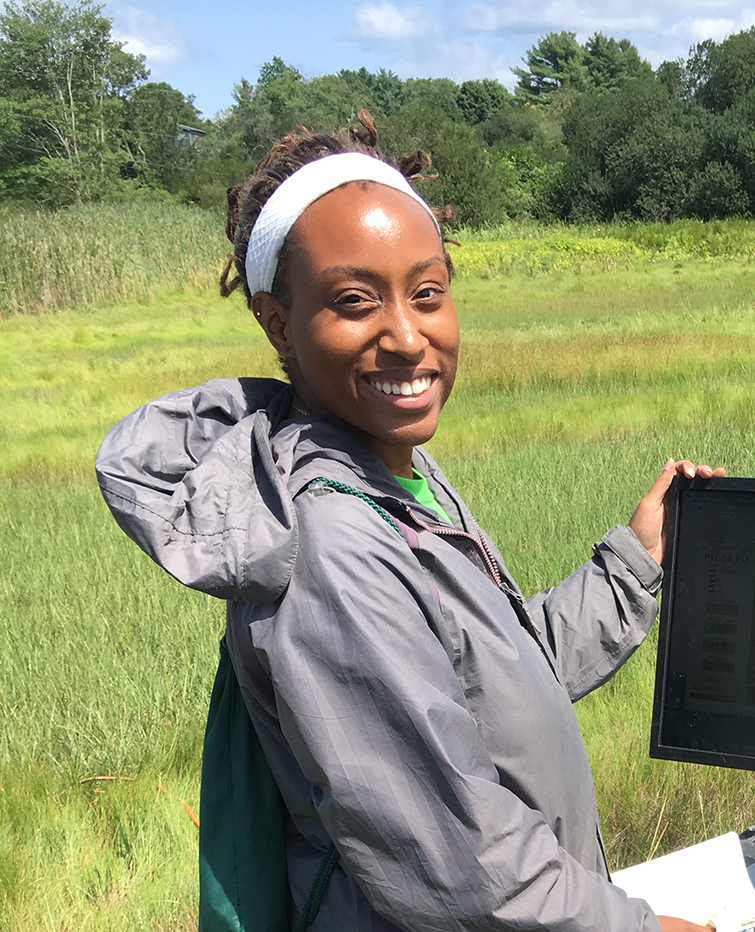
Erica Holm, Urban Ecologist
Growing up, Erica Holm imagined herself as a veterinarian but soon realized her passion for wildlife and conservation biology. After several years in academia, she started her career in an urban forestry role at a local environmental nonprofit, leading her to become Mass Audubon’s Urban Ecologist.
Urban ecology is a relatively new, multidisciplinary field where scientists work to understand and improve how nature can sustainably persist in human-dominated landscapes. This science seeks to benefit all wildlife and people with each project. “When I’m planting trees or restoring urban sites, I’m not thinking about how it will impact me in my lifetime; it’s for the people living here in 25, 50, even 200 years,” said Holm.
Along with her colleagues, Holm will study, restore, and promote access to urban greenspaces in Massachusetts cities. In her role, she will facilitate and participate in partnerships across agencies, communities, and individuals at local, regional, and national levels for the benefit of urban greenspaces. She will also actively create new pollinator gardens, preserve wetland habitats, restore former building sites, and serve as a general urban ecology resource to other practitioners and the public.

Martha Gach, Regional Education Manager
Martha Gach, Regional Education Manager at Broad Meadow Brook Wildlife Sanctuary in Worcester and President of the Massachusetts Butterfly Club, grew up with the dream of being a park ranger. She received her doctorate in ecology and evolutionary biology and began her work as a professor in Michigan.
After moving to Massachusetts with her family, she found a job posting at Broad Meadow Brook, where she has now worked for over 20 years. “I love that I’ve been able to incorporate the science background I have, and not just do esoteric research, but doing real-world education and environmental work that addresses big picture solutions in climate change,” said Gach.
As a regional educator, Gach works directly with the community to spark a passion for boys and girls interested in science. She can promote hands-on learning by engaging with volunteers of all ages through her projects, like the development of rain gardens, which absorb stormwater, therefore lessening the damage of flooding.
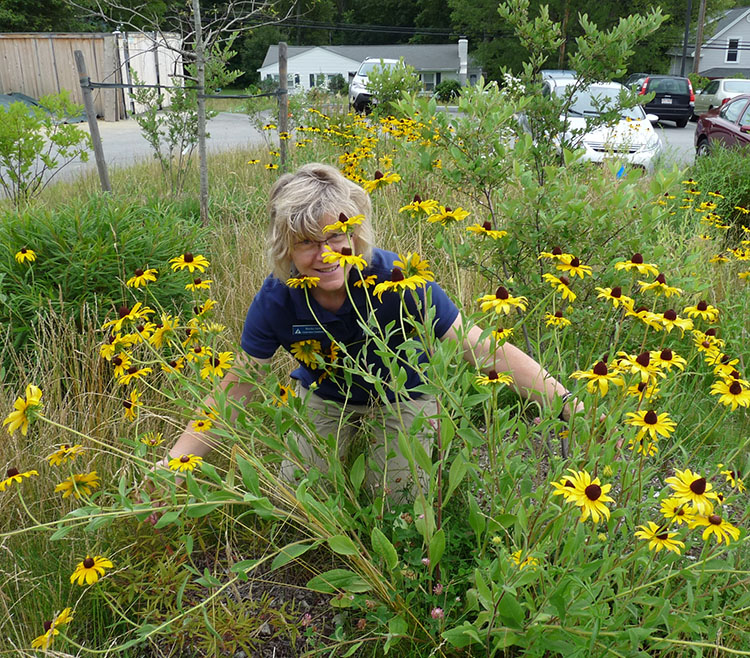
These women are just a sample of the talented scientists across Mass Audubon, and truly bring the Action Agenda to life. By having team members like Dr. Perry, Holm, and Gach, we are able to create lasting impacts across the state.


